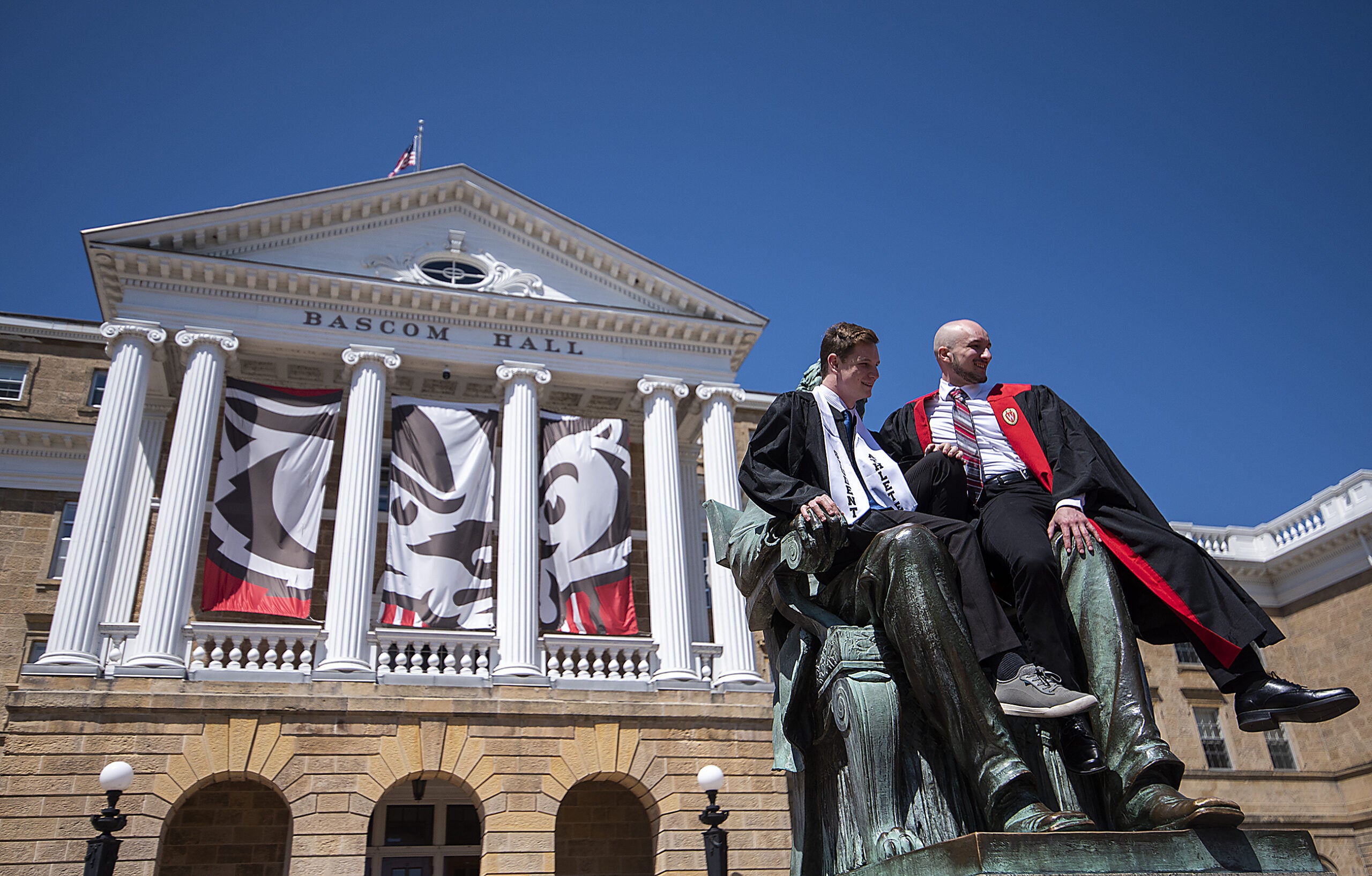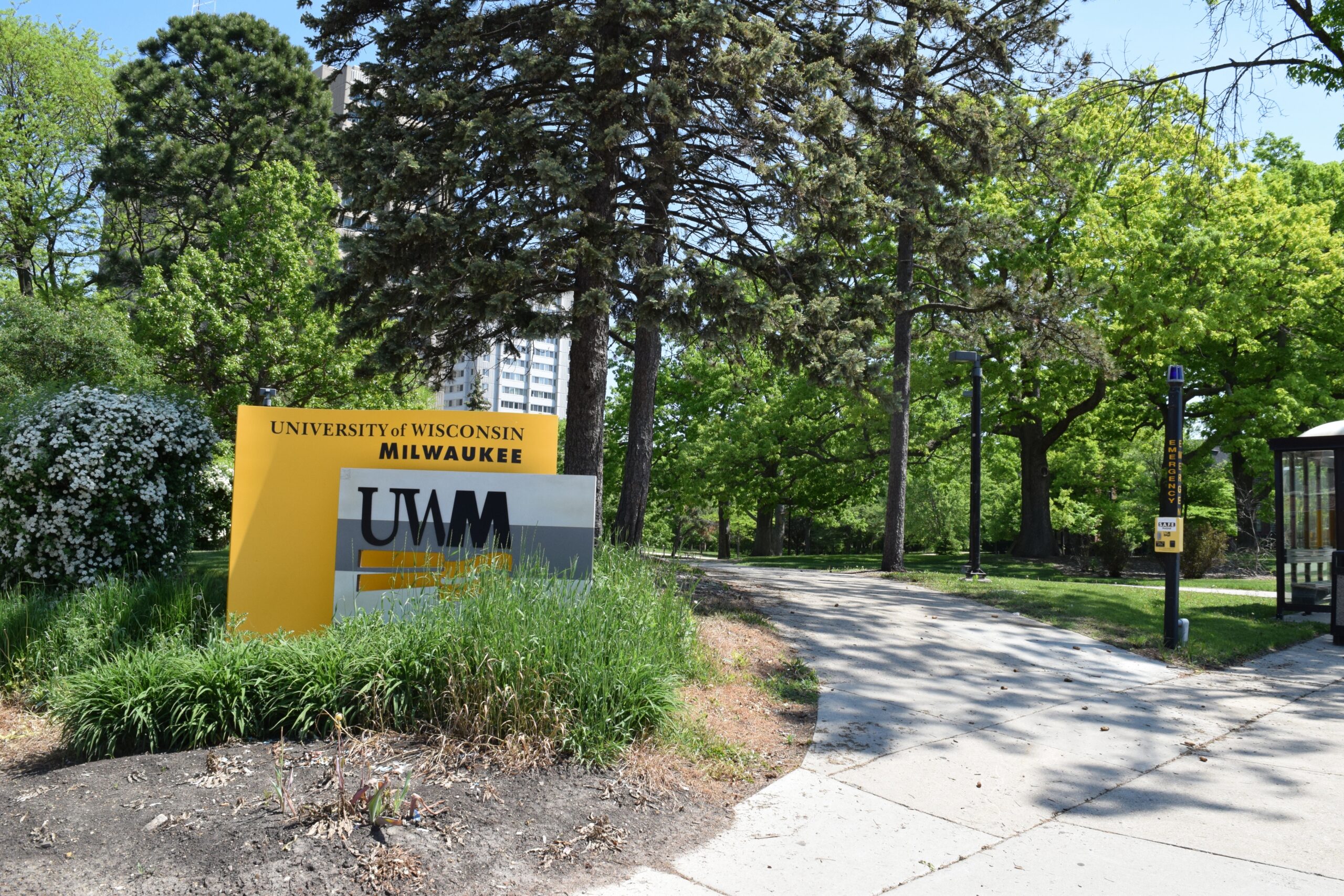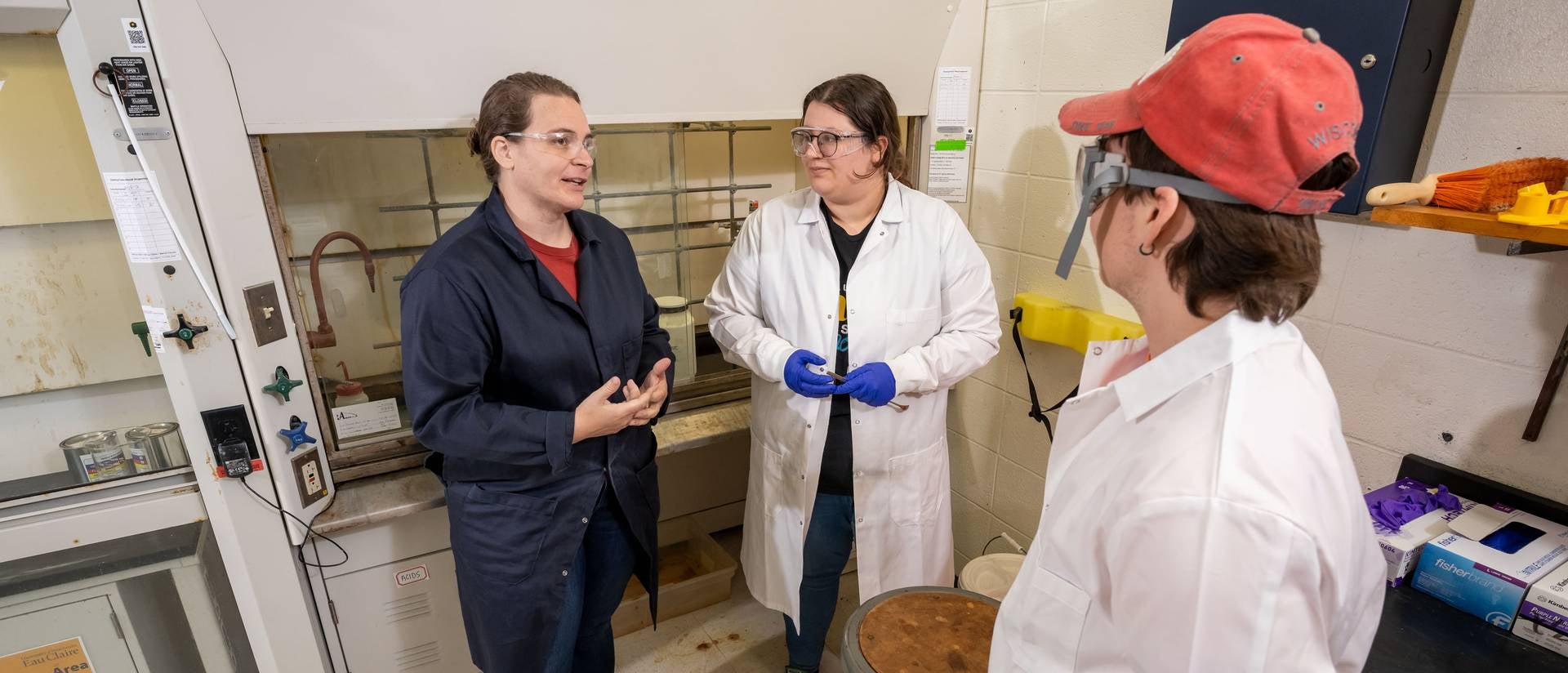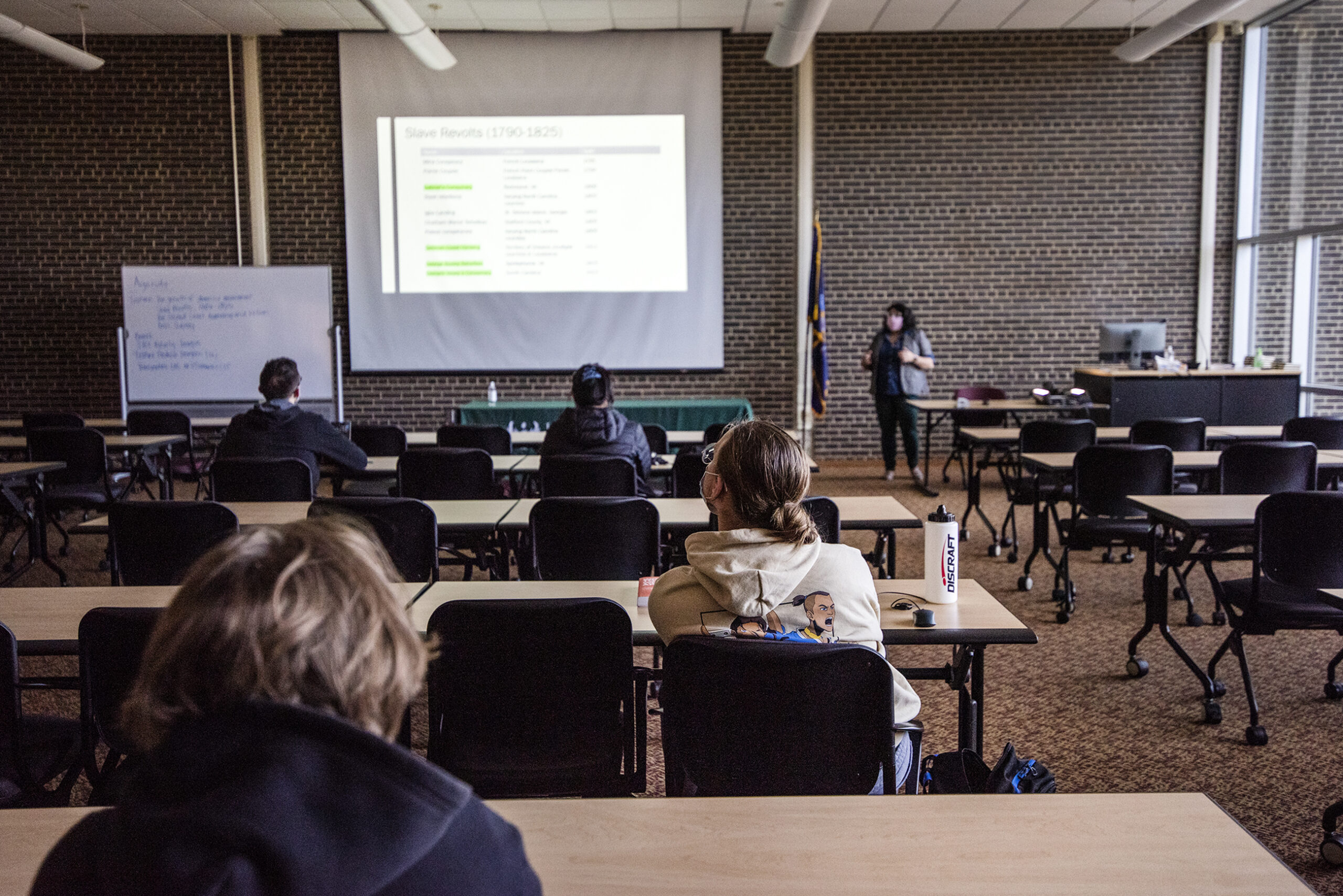Nissy Obasi wasn’t worried about finding a job during her final semester at the University of Wisconsin-River Falls. That’s because the computer science and economics double-major has had one in place for almost a year. She secured it after a summer internship on Wall Street for international financial services firm Deutsche Bank.
“I now had a senior year ahead of me where I didn’t have to think about, ‘Oh darn, I need to send out applications. What should I be doing up to graduation?’” Obasi said. “I’ve had the chance to really enjoy senior year without having that on my back.”
College students nearing graduation in Wisconsin and across the U.S. are entering a hot labor market, and they know it. For employers grappling with a worker shortage, new graduates are part of a scarce resource: new entrants into the workforce. Competition for talent is leading to earlier job offers, higher wages and negotiating power during the hiring process.
Stay informed on the latest news
Sign up for WPR’s email newsletter.
Obasi’s advice to students being courted by employers? Don’t be afraid to counter a job offer.
“I feel like negotiation skills, not a lot of people have them,” Obasi said. “If you’re given an offer of $100,000, you just take it. You can get that 120 ($120,000) and maybe throw something on top. Just negotiate.”
While salaries that high fall well above the national average, data show salaries are rising across industries. And competition for new grads is fierce.
“This is an even hotter period for recruiters than they thought it was going to be in the fall,” said Josh Kahn, assistant director of research and public policy for the National Association of Colleges and Employers. “It’s an applicant’s job market.”
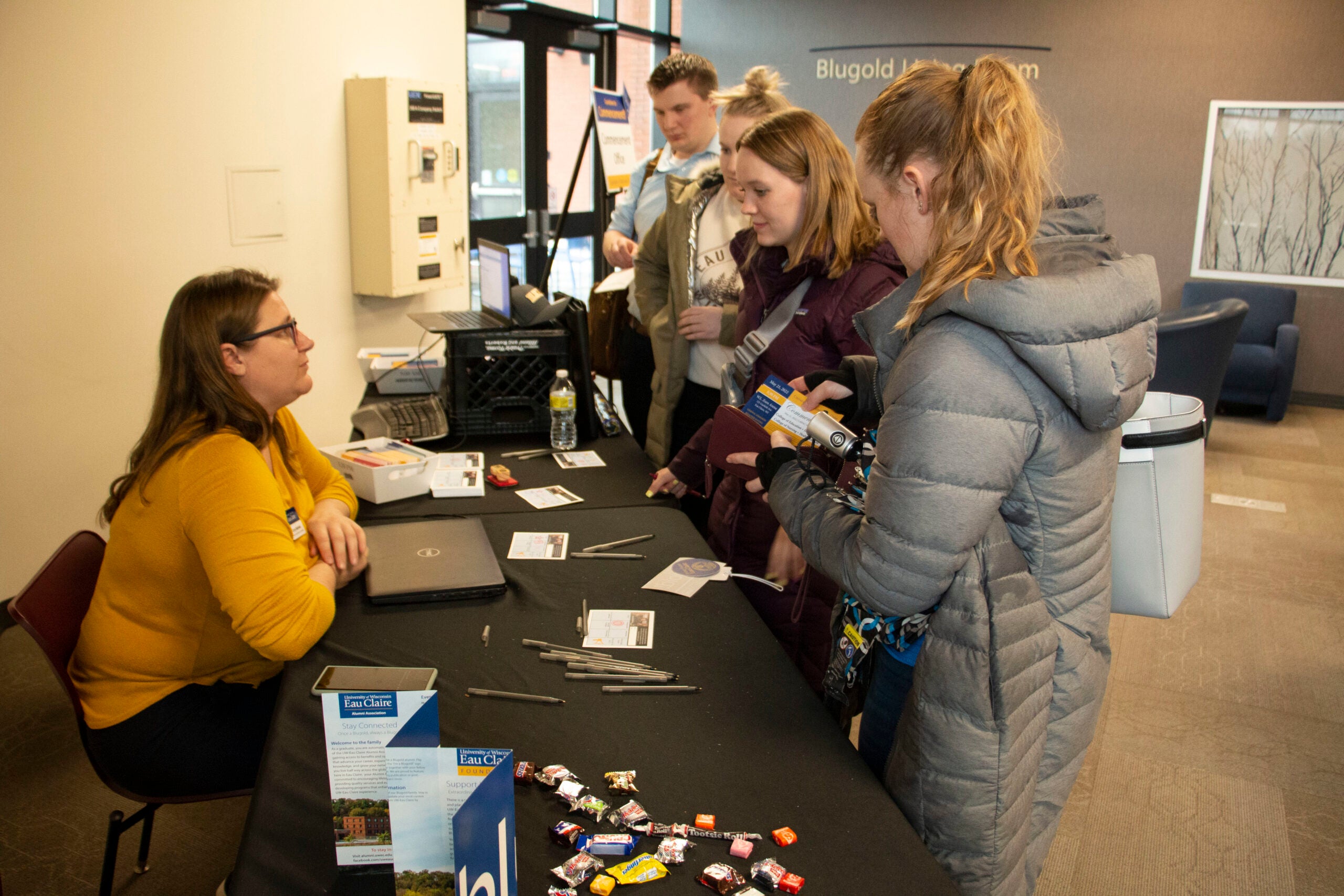
A survey by NACE suggests major employers anticipate hiring 31 percent more college graduates this year than they did in 2021. That’s the largest increase in at least a decade.
Those about to graduate have noticed. Students interviewed by Wisconsin Public Radio at state universities said job offers have not been hard to come by. Six out of eight seniors had secured employment well before this month’s commencements.
Sam Mattson considers himself one of the lucky ones. The UW-Eau Claire general education major was offered a full-time gig after student teaching at a middle school in the city.
“The biggest problem I had with it is, you get into the classroom some more, and you have current teachers that have been in for a long time saying, ‘Are you sure? 100 percent positive?’” Mattson said of those questioning his decision to become a teacher. “So, you’re second guessing yourself more than you are the economy at this rate and staying true to yourself goes a long way in that.”
Even for seniors who haven’t secured jobs, like UW-Eau Claire general and special education major Hannah Lea, graduation doesn’t seem so scary. She noted that there’s a teacher shortage in Wisconsin and even programs that pay prospective teachers to go back to school.
“It’s a really big job market right now,” Lea said. “So I’m not really too concerned.”
The national unemployment rate for those with bachelor’s degrees was 2 percent in March, according to the U.S. Bureau of Labor Statistics. The rate for those with high school diplomas was twice that.
Jim Kwapick, a district director with international talent solutions firm Robert Half, said the demand is partly driven by the recovery from 2020’s sudden economic recession spurred by the COVID-19 pandemic. But he also points to bigger trends, like earlier-than-expected retirements of baby boomers.
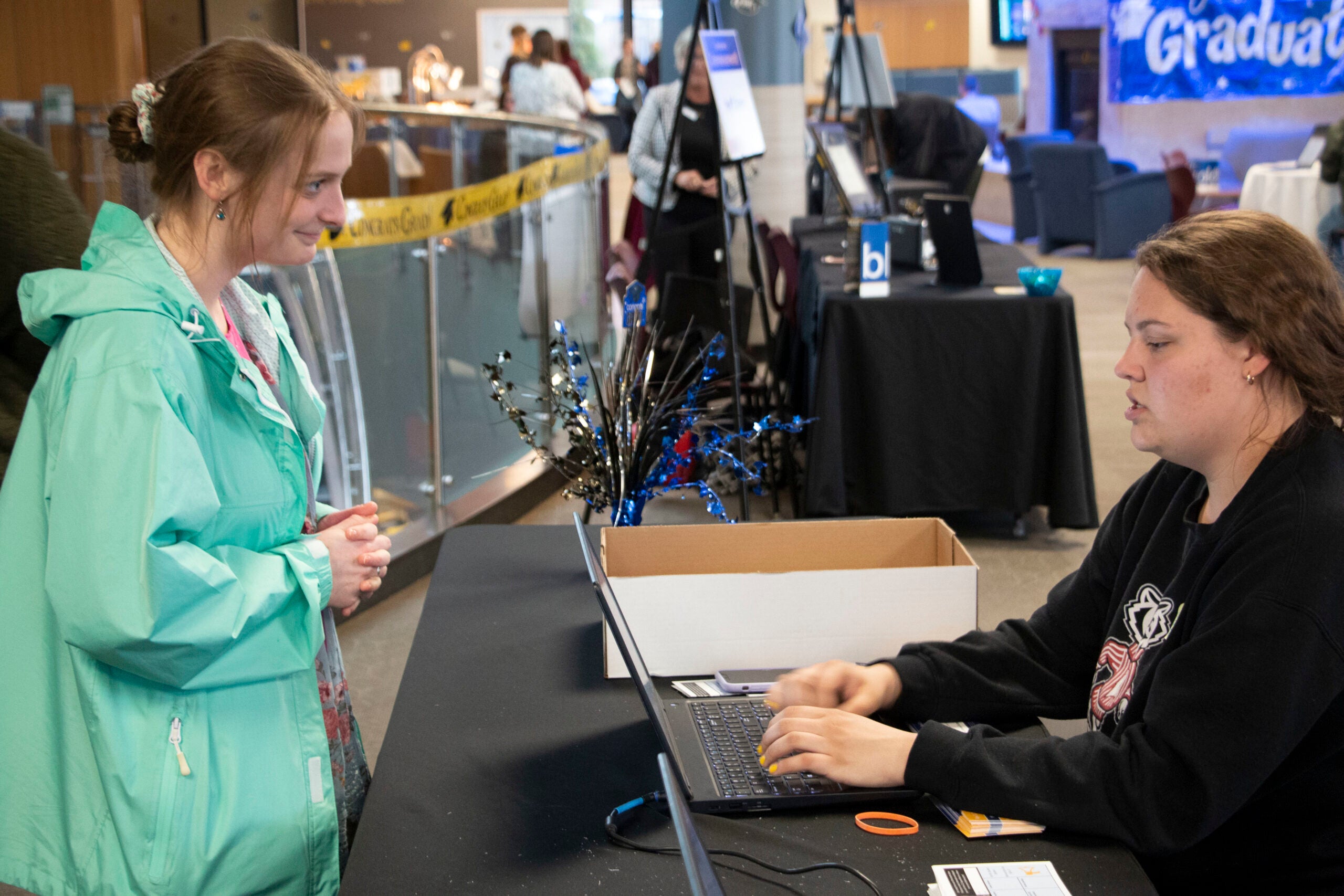
“So what’s happening is many employers are getting out ahead of the graduating class, and they’re locking students in well before they graduate, unlike it’s ever been,” Kwapick said.
The competition is also giving college students more of a say in the hiring process, Kwapick added, over things like salary or remote work flexibility.
The Federal Reserve Bank of New York reported a record $22,000 annual pay gap last year between those with bachelor’s degrees and those without.
Despite that earnings gap, college enrollment has fallen in the last two years. Elise Gould, a senior economist with the Economic Policy Institute, points to what she called a sudden, pandemic-induced recession, as one of the reasons for the drop in enrollment.
While recessions can be good times for people to go back to school, get degrees and find better jobs, COVID-19 flipped that on its head.
Gould also said the pandemic added disproportionate roadblocks for Black, Hispanic and lower-income individuals who may not have been able to enroll or stay in college.
“You need to have money, you need to have time, you need to have other resources to be able to make those kinds of investments,” Gould said. “And that’s just not accessible to many people across the country.”
Staci Heidtke works at UW-Eau Claire’s Career Services office to match students with employers. She said with such a strong job market, students have new assurances that they’ll find something.
“And it allows them a little bit of space and a little bit of time to maybe consider a few different offers, negotiate a salary a little bit, which is kind of a new thing for students to learn how to do,” Heidtke said.
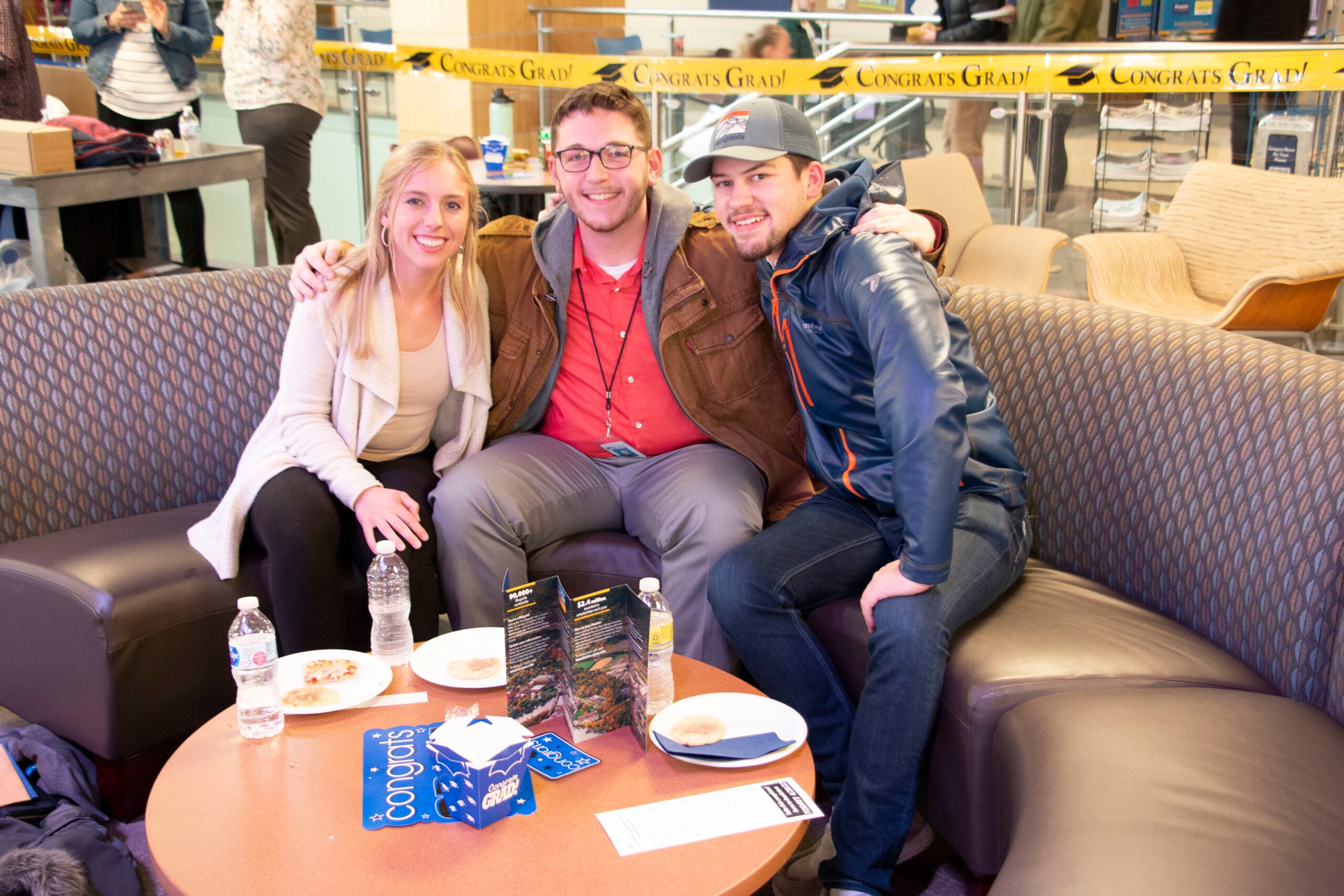
For some students, like UW-Eau Claire social studies major Taylor Schmidtfranz, the hiring process can go quickly. She was offered a teaching job in New Richmond in April, a day after her interview.
“February, March, I was kind of freaking out a little bit,” Schmidtfranz said. “‘What am I doing with my life? Where am I going to live?”
It’s a relief, she said, to have a job in place.
“I feel ready to graduate now,” she said.
Wisconsin Public Radio, © Copyright 2025, Board of Regents of the University of Wisconsin System and Wisconsin Educational Communications Board.

